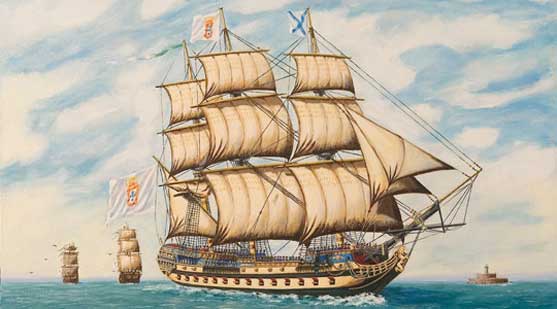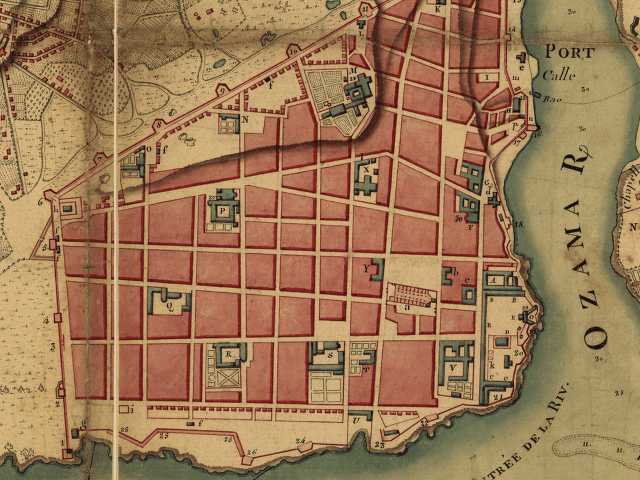********************************************
Haitian Re-Unification of Hispaniola Part 2
“When war is declared, truth is the first casualty.”
********************************************
Indeed, the war that was launched under the pretense of righteous liberation, had by day 4 transformed into a quagmire.
Though nominal gains had been made in the first few days of the war, specifically the largely rural, unpopulated mountainous regions of the Hispaniola-Centro being seized out right by Haitian militia forces, the large key colonial centers of Santiago, Porta-Plata, La Vega, and the capital Santo Domingo remained in French hands.
Andre Dupart, leader of the Haitian Army had hoped to sweep the French out of the North coast, but had become hopelessly bogged down outside of Porta-Plata and then Santiago.
The third army militia corps, split off as a diversionary force was able to sweep unchallenged across southern Hispaniola capturing the several small coastal towns and villages. Yet, upon advancing on an entrenched French garrison in the village of Bali, they were thrown back to the city of Azura.
Dupart, who hoped to draw the French out into the tropical jungle terrain he knew his militiamen would thrive in, frustratingly couldn't stoke a French counter attack.
By day 7, Dupart sent word back to the Port-Au-Prince, informing the New Tree of Liberty Committee of the situation.
“
We need artillery if we are to break this defensive lock”, said committee speaker Alexandre Petion as he read Dupart’s army status report aloud.
“Our position is hopeless if we cannot take one of the key cities.”
The chamber immediately turned to Jean. .
“Where are the shipments from the American trade agreement” cried one of the members.
“Where are the fruits of our Treaty!”
Maximilen, who only hours before had received a letter, hand signed by President Thomas Jefferson, informing him that the US Congress would not be going forward with agreement, knew he must admit to the session that US aid should not be expected.
“Gentlemen, the Americans are not coming.” Jean admitted to the bickering committee chamber. “
We are truly alone in this war. The US Congress has refused to ratify the treaty.”
Speaker Alexandre Petion stood up.
“I doubt there was a treaty in the first place,” he sarcastically retorted.
“Really Jean, must we continue this charade?”
Sounds of laughter filled the chamber.
“
Does this man, who has not only made us a diplomatic laughing stock but has also lead us into a war of ruin, really deserve our confidence?” Alexandre declared sharply.
Silence fell upon the room.
“No, I motion that we immediately dismiss this charlatan from his leadership position and appoint a new member to the chair.” said Alexandre
“I second the motion!” shouted another disaffected committee member.
The motion passed and Jean, shamed in front the men who use to call him brother, marched out of the chamber room and into retirement.
Immediately after, an emergency vote was called which saw Alexandre Petain, mixed race moderate liberal committee speaker rise to the leadership position.
“
This pointless war must be halted if we are to preserve stabilize our tentative economic situation.” Alexandre announced to raucous committee applause. “We must establish and maintain peaceful co-existence with all of our neighbors if we are to cultivate trade relations.”
Word was immediately sent to the front lines commanding Dupart to halt all military operations and pull back behind the boarder.
**********************************************
Day 10 - Sibion & Portuguese Merchant Fleet
Somewhere at Sea
**********************************************
“
Land ho!” the captain’s voice yelled out again in Portuguese.
Looking outside the port hole in the cargo hold, Sibion, the orphan Angolan stowaway, saw a lush green land mass off in the distance.
As the greenery drew closer, he was able to make some small buildings, similar to structures he remembered in Luanda.
One of the structures, he remembered specifically.
A long metal pole with fluttering fabric attached to the top.
“Those colors…” Sibion thought to himself. “Are different then ones he remember in Luanda.”
Back on the top deck, the Portuguese captain, glaring gleefully into the distance, called his crew to the attention.
Calling his firstmate to come forward he asked “What do you see over there Firstmate Manuel?”
“Land captain! Land!” his first mate shot back.
“And what flag do you see over there waving in the distance?” the Portuguese captain asked again.
“
The Napoleon Tri-Color Sir! The Ol’ Blue, White and Red” the first mate answered.
Turning his attention to the rest of the crew, the Captain spoke.
“Lads today is a day for revenge! As you’ve known since we left port in Luanda we have been ordered to raid the French possessions here in the Caribbean. Too long have our brothers and died and port blockaded in Father Portugal by the hands of Frenchmen and French agents. Today is a day we enact our revenge!”
The crew cheered.
“
Men! To your battle stations!” the Captain announced.
*********************************************************************************
Day 10 - Santiago
Army Encampment Outside Santiago
*********************************************************************************
“Genera Dupart! General Dupart!” yelled his frantic first lieutenant as he rushed into Dupart's camp quarters. “General, Another miracle has happened!”
“What boy?! What? Out with it!” Dupart yelled back.
“
Word from the southern militia corps says they’ve seen ships shelling the coastal French positions with the Santo Domingo itself being target of heavy bombardment!”
Pausing for a brief moment, Dupart was suddenly seized with a surge of energy.
He zoomed out of his tent and into the army encampment.
Announcing to his resting soldiers, he spoke of the surprise bombardment of the southern coast.
“
We must strike now if we are to regain the initiative! Santo Domingo must fall!”
Dupart then split his encamped army in two, leaving the entire militia detachment behind outside Santiago while taking his entire regular Haitian army troops on a march through Hispaniola-Centro to meet up with the third army corps in encamped in Azua.
By the time the order to withdraw from Port-Au-Prince arrived in Santiago, Dupart had already departed.
By Day 13 of the war Dupart met up with the third army corps in the south.
Three days of marching, coupled with some small skirmishes along the way resulted in some nominal causalities.
Upon linking up with the third army, Dupart immediately marched on Bari, which had since been evacuated of French Troops due to Portuguese shelling, capturing the city immediately and raising the Haitian Flag.
************************************
Day 14 - Attack on Santo Domingo
*************************************
On Day 14 of the war and on the eve of the Haitian attack on Santo Dominigo, Dupart spoke to his men.
“
Look among you!” he announced to his battle tested army.
“
You, decedents of different races of men; Black, mulatto, Spaniard, African; You are all brothers in arms! And today, you will all fight, bleed together! As we march over that hill, and into the destiny that God Almighty has set before us, never forget the sacrifices that your brother will make for you on that battlefield today! The spirit of L’Ouverture and the spirit of Hispaniola will be avenged!”
Immediately the men, who shouted with tears in their eyes stormed across the hill and down into the French-held capital.
4 days of intermittent shelling by the Portuguese merchant ships had significantly softened the outer defenses of the city.
French garrisons on the southern urban side had been without sleep for several days, as they worked tireless to repair damage to the colonial battlements, keep the local Dominicans from revolting and remain prepared form an imminent Haitian attack. Moral was low and food was running short.
As the first wave of Haitian militia men reached the outskirts of the city several French positions opened fire mowing down the several hundred Haitians in the process.
After several other waves were unable to pierce the outer defenses of the city, Dupart, who was using his militia troops as a tactic to draw fire, was able to place 7000 regular army shock troops on the northern side of the city without out any resistance.
Once placed, Dupart ordered a massive wave of 25,000 machete-wielding militia troops to charge forward.
“
Break the line! Break the line!”
The French, who started to let loose their infamous Napoleonic cannons, were able to kill the first couple thousand but soon saw their initial positions overwhelmed.
“
Fall back men! Fall back to secondary positions!” yelled Kerversau, who was personally leading the defense of the city.
Blowing a horn, which served as the signal to the veteran shock troops stationed north of the city, Dupart gave them the order to storm the city.
Seeing the crack Haitian army troops charging down plains, several Dominican boroughs situated around the north of the city immediately began to revolt.
French troops, which had stationed themselves in the several key residential buildings, were suddenly attacked by the populace.
As the Northern Haitian shock troops reached the edges the city, and began to make their way to the city center, they witnessed bodies of dead Frenchmen being thrown from rooftops and balconies all along the route.
Back on the southern advance, and meeting extremely heavy resistance,the Haitian militia forces pursued Kerversau’s French troops as they continued their structured retreat towards the city center.
Dupart, which by now had entered the city through the southern breach was marching with the rest if the Haitian regular army along the way.
On the north side, Haitian troops, which had quickly made their way city center, with the assistance of the revolting Dominicans set up defensive positions.
The Pincer was set.
Kerversau’s initially successful structured retreat, turned into a Haitian ambush as his forces retreated directly into Haitian musket fire.
The Haitian militia, which had caught up French troops from their Southern advance lunged upon the French troops, slaughtering them with machetes.
Kerversau himself being captured alive though mortally wounded in the rout.
Dupart, which only weeks early had been stuck in the tropical jungle around Santiago, marched triumphantly into the city center of Santo Domingo to the cheers of his army troops and resident Dominicans.
“
Dupart! … Dupart! … Dupart!”
The capital of French Hispaniola had been liberated and the Governor General Kerversau had been captured.




